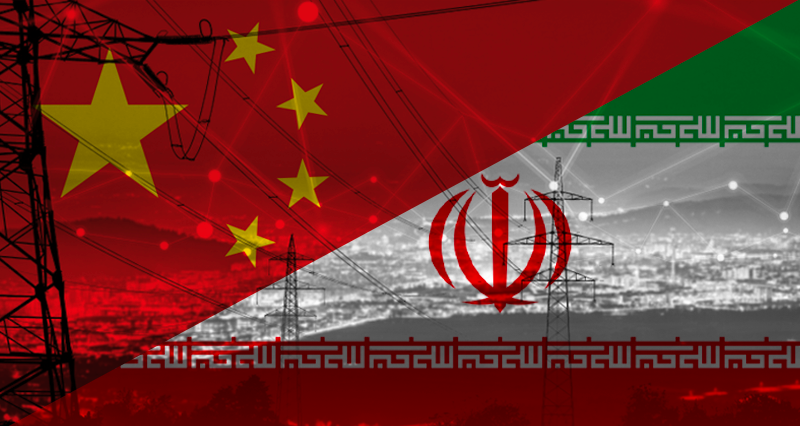The new realities in the South Caucasus and in the world after the 44-day-long Second Karabakh War are not satisfactory to everyone. Changes in the geopolitical situation may strongly affect the interests of certain countries. However, by focusing on dialogue and cooperation, a solution can be found.
If steps are taken to cooperate and open the transport infrastructure between Armenia and Azerbaijan, which have been at war for the last 30 years, it means that cooperation between all countries in the region is possible. On October 6, Azerbaijan and Armenia declared their airspace open to passenger aircrafts of both countries. This shows the possibility of broader cooperation in the region.
Tensions between Iran and Azerbaijan: What is the problem?
In recent weeks, there have been tensions between these two neighboring Muslim countries. Although there are natural causes for this tension, there is also a great deal of external provocation. As it turns out, there are forces in the South Caucasus trying to create a new source of conflict and open a new front against Iran.
What is the root of the problem? After the 44 days of the Second Karabakh War, Azerbaijan regained its territorial integrity and the Azerbaijani army began to control the state border with Armenia. After 30 years of occupation, the Azerbaijani soldier is standing on his own border today. What has happened in this region in the last 30 years is no longer happening: illegal access to these areas is no longer possible without the permission of official Baku.
Until recently, trucks belonging to the neighboring Islamic Republic of Iran also entered Karabakh without permission, which led to dissatisfaction on the Azerbaijani side. An official note to Tehran, which ignored the verbal warnings of official Baku, further strained bilateral relations. After that, Iran began to make harsh accusations and statements.
There are always such problems between countries, but the main issue here is to resolve these issues through dialogue and negotiations. However, the start of military exercises by the Iranian army on the border with Azerbaijan has complicated matters: this is the first time they have conducted such exercises in 30 years. While it is the sovereign right of every state to conduct military exercises on its territory, the Azerbaijani people have a number of questions related to these exercises: why are they taking place and why now, why on our border?
Third parties are waiting for an opportunity
Countries and forces that saw this tension as an opportunity took immediate action, as was to be expected. The United States and Israel were waiting for their moment. Israeli Ambassador to Azerbaijan George Deek’s Twitter posts further served to aggravate the situation in the region. The ambassador made statements against Iran in every post and said that Israel stands with Azerbaijan. It is as if preparations are being made to pit Azerbaijan against Iran.
The main concern of the Islamic Republic of Iran is the possibility of Israel’s strengthening politically and militarily near its borders. Official Tehran takes a hard line against this course of action. Because Israel is an open enemy of Iran, the growing influence of Israel in neighboring countries is forcing Tehran to take precautionary measures.
In any case, the countries that will lose as a result of this tension will be Azerbaijan and Iran. For this reason, official Baku and Tehran must resolve this misunderstanding through dialogue, and at the same time the national interests of both countries must be mutually understood and accepted.
What are the national interests of Azerbaijan?
a) Azerbaijan, which has just liberated its lands from occupation, does not want revanchist forces in Armenia to become more active and start a new war. In this regard, official Baku is forced to reconsider its relations with any country that provides military assistance to Armenia. Tehran must not forget this reality in its relations with Armenia.
What are the national interests of the Islamic Republic of Iran?
a) Iran cannot accept the military-political existence of the United States and Israel, which it considers an enemy, near its borders: Tehran sees this as a threat to its national security. Baku understands this very well and in this regard does not allow and will never allow any maneuver against Iran from its territory.
Possibility and consequences of war between Iran and Azerbaijan
Although the probability of a military conflict between Iran and Azerbaijan is zero, both countries should know that such a war will lead to tragic consequences for both sides. For Azerbaijan, which has a population of 10 million, going to war with Iran, which has a population of 84 million, means mass casualties and destroyed infrastructure. The example of Iraq and Syria should not be forgotten.
Iran will have to fight the Turkish-Pakistani-Israeli coalition if it intervenes militarily in Azerbaijan. The scale and geography of the war would increase. Iran may be left alone on the field. Given that more than 40 million people are Azerbaijani Turks, Iran is likely to be divided internally.
Israel’s concern and interests
Israel, which makes the most statements about the tension between Azerbaijan and Azerbaijan, does not hide its interests: to mobilize more countries in the world against Iran. The state of Israel considers Iran a threat to its national security and to Jews around the world.
The Israeli-Iranian confrontation is not showing any signs of slowing down, and any country that takes part in this conflict can become a battlefield themselves.
In both Azerbaijan and Iran, statements that harm mutual interests should be avoided and more messages of dialogue and cooperation should be offered. Third-party countries should not be allowed to enter into relations between these two countries.

















Leave a Reply